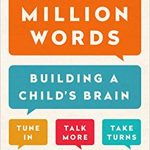Language-Building Tips for Parents
When our second-born son failed his newborn hearing screening, I was thrust into unfamiliar territory as a new mom. In addition to the normal adjustments that come with bringing home a newborn, I was also faced with the reality that our son had permanent hearing loss.
His official diagnosis came at three weeks, he was fitted with hearing aids at seven weeks, and we had him enrolled in early intervention speech therapy by 11 weeks of age.
While I look back on the early years of our son’s life, I remember feeling incredibly overwhelmed by all of his therapies and the long list of reinforcements I was expected to practice with him between appointments. I also can see with clarity how much his early intervention educated me as a parent.
Literacy and speech development go hand-in-hand – growth in one area will consistently support progress in the other. With that in mind, here are some ideas from a “therapy mom” for boosting your preschooler’s speech development, while building early literacy skills.
Parent Talk
One helpful coping mechanism I developed as a new mom of a hearing-impaired child was to read research on child brain development. My favorite book on this topic is Thirty Million Words, by Dana Suskind – I highly recommend this book to any parents of children ages 0-5. Here is a link to the University of Chicago research that the book is based on.
The Thirty Million Words project has shown that the number of words a child hears from parents and caregivers has an enormous impact on vocabulary acquisition, listening comprehension, and speech aptitude. Parent talk – meaning child-directed speech, complete with conversational turns and open-ended questions – has endless benefits for children. Conversely, words overheard by kids on the radio, TV, or YouTube do not have this same speech-building benefit.
Parents can profoundly influence their children’s speech development through simple conversation. So, while electronics may be the fastest way to settle impatient preschoolers, they need as much practice conversing with adults as possible. Try to maximize your time between errands and appointments by putting away the tablet, and making conversation instead.
Having silly conversations or playing games like “Would you Rather” and “I Spy” in the car while driving to and from destinations will keep them thinking, talking, and building vocabulary. Using the time spent in the lobby of the doctor or dentist office to read books aloud, or discuss the pictures in magazines, is another way to make the most of your in-between time together.
Keep Reading Together
Search for library books together on topics that really spark your preschooler’s interest. Some children thrive on fantasy fiction about dragons or fairies, while others prefer non-fiction books about animals or outer space.
Even as your child grows, remember that independent readers still love to be read to. Try to still find time to read aloud to your child at a slightly elevated reading level. They will benefit from hearing new vocabulary and more complex sentence structure, as well as your varied voice inflection emphasizing the punctuation and dialog within the story.
Be sure to pause at words you think they may not understand, because some kids won’t interrupt to ask. If they can’t define a word for you, help them figure it out with context clues. This would also be a great way to introduce the concept of looking up unfamiliar words in a dictionary. Keep one in your reading area so it’s readily available.
If you come across some foreshadowing in the story, ask your child if they can figure out what might happen next; then, have them tell you why they think so. See if they can figure out the emotions different characters are feeling in the story. Can they tell by the illustrations, or by the text?
The quality of your reading time together is more important than the quantity of pages you finish at each sitting. Such in-depth reading will support your child’s speech development – and reading comprehension – far better than would rushing through multiple books during the same time frame.

Stay Engaged
Whether you’re at the neighborhood park, the zoo, or a children’s museum, talk about the new things you’re experiencing together. You can make even the simplest activity a speech-building opportunity by staying engaged.
The playground is a prime opportunity to help your child practice conversation skills such as making introductions, asking for a turn on the swings, or inviting new friends to play.
At the zoo, discuss the new animals you encounter. Read signs on the enclosures together to find out about animals’ natural habitats and what they eat in the wild. Or, at the museum, discuss the new geology facts you learn.
Once you’ve finished your visit, keep their wheels turning on the way home by asking questions about what their favorite exhibits were, and what they enjoyed most about them.
And at the end of the day, if you feel the urge to tuck your little chatterbox into bed early to allow yourself to recharge in silence, you are doing everything right!


Comments are closed.